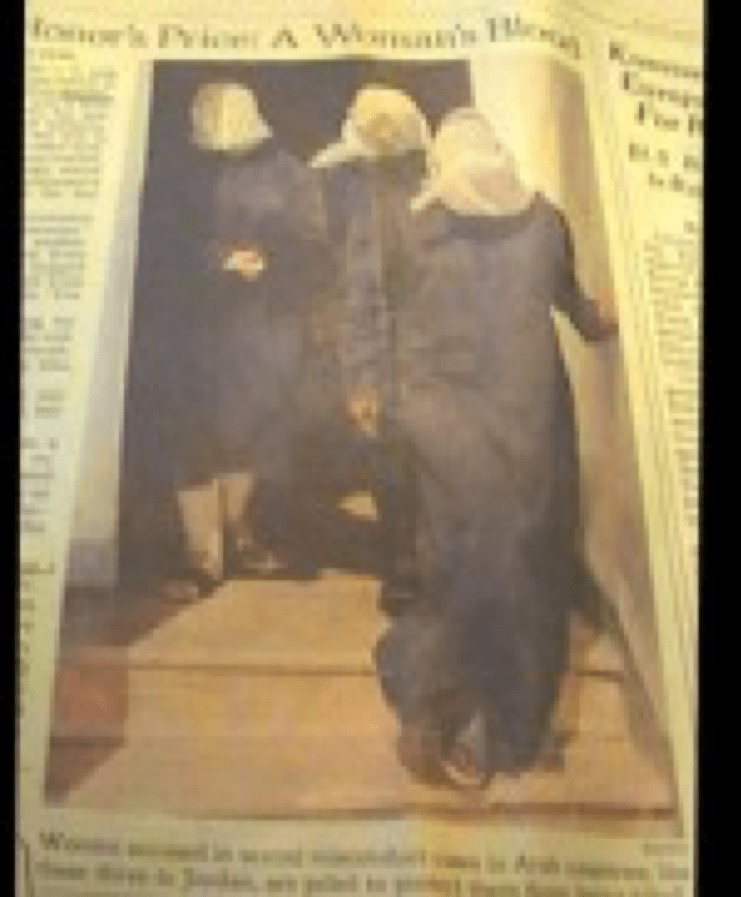
In 1999, I read a N.Y. Times cover article entitled ‘Arab Honor’s Price: A Woman’s Blood’ by Douglas Jehl, which began with the story of a woman who was hunted down and murdered by her brother because she shamed the family by running off and marrying the man she loved but they hadn’t approved of.
The article explained how in some parts of the world, a women’s chastity is everybody’s business; that a family’s reputation can be destroyed based on how the females of the family are perceived; and the only remedy for a disgraced family is to ‘kill the offending woman or girl’.
Some countries like Jordan or even in England, now, women are housed in jail cells to protect them from their vengeful, unforgiving families. I realized for the first time, there were places in the world that did not share the same value for life and family that I’d been raised to believe in.
The article went on to highlight several cases that were shocking, bewildering and eye-opening for me. As a writer, I pondered what it must be like to feel unsafe within your own family with nowhere to run for protection or never to experience affectionate touch—or simply not being loved or trusted because you were a girl child—and that this had cultural or, possibly, religious roots. In the time it took me to get up from my desk, the Universe literally downloaded in pure cinematic form part one and most of part two of UNBOWED, into my head!
However, it took three years to get the story out of my head and into a 200 page screenplay (yes, that’s long), and another six years before the first draft of the novel was started—as suggested by one of my screenwriting professors, Michael Nolan.
Also, during this time, practices like female genital mutilation and infanticide came into my awareness. I became attuned to any news story or documentary film that focused on these issues as well.